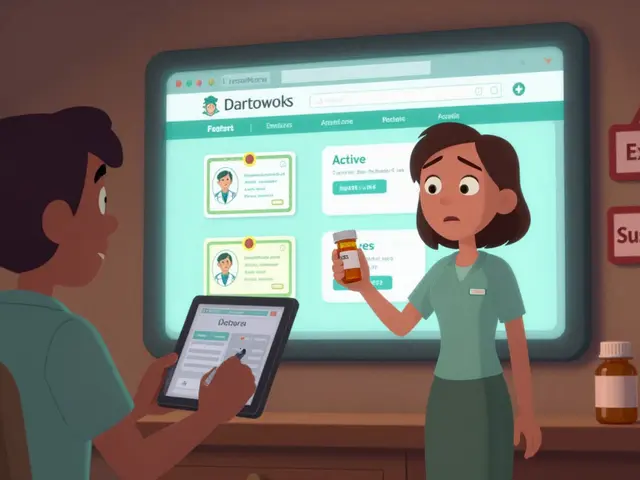Ovarian Cancer Diagnosis: Symptoms, Tests, and Next Steps
Worried about ovarian cancer? You’re not alone. Early signs can be vague—bloating, pelvic pain, feeling full quickly—and that makes spotting it hard. This page lays out the common symptoms, the tests doctors use, and what happens if something suspicious turns up. Read on so you know what to ask and what to expect.
When to see your doctor
If you notice persistent bloating, pelvic discomfort, unusual vaginal bleeding, changes in bathroom habits, or unexplained weight loss for more than a few weeks, make an appointment. If you have a family history of ovarian or breast cancer (especially BRCA1/BRCA2 mutations), don’t wait—tell your doctor right away and ask about referral to a specialist.
Your primary care doctor or gynecologist will start with a focused history and a pelvic exam. They may feel for lumps, swelling, or tenderness. Abnormal findings or worrying symptoms usually lead to further testing.
Common tests and what they mean
Here’s a quick guide to the tests you might get and why:
Transvaginal ultrasound (TVUS) — This is often the first imaging test. A small probe inside the vagina gives a close look at the ovaries and any masses. It can show size, shape, and whether a mass looks solid or filled with fluid.
CA‑125 blood test — CA‑125 is a protein that can be higher in many ovarian cancers. But it’s not definitive: levels can rise with benign conditions like endometriosis or even during menstruation. A normal CA‑125 doesn’t rule out cancer, and a high level doesn’t confirm it. Doctors use it alongside imaging and symptoms.
CT or MRI scans — These scans check if a suspicious mass has spread beyond the ovary. They’re useful for planning surgery and staging the disease.
Biopsy and surgery — A tissue sample is required for a definitive diagnosis. Often, surgeons remove the mass (or perform laparoscopy) and send tissue to pathology. The pathology report tells you whether it’s cancer, the cancer type, and how aggressive it appears.
Genetic testing — If ovarian cancer is confirmed, testing for BRCA1/BRCA2 and other hereditary syndromes is usually recommended. Results affect treatment choices and family screening.
After diagnosis, doctors use staging (based on surgery and imaging) to decide treatment: surgery, chemotherapy, or targeted therapies. For best outcomes, ask for a referral to a gynecologic oncologist—these surgeons specialize in ovarian cancer care.
Is routine screening recommended? For average-risk women, routine screening (CA‑125 or ultrasound) is not recommended because it hasn’t been shown to lower deaths and can cause unnecessary procedures. High-risk women may follow a different plan—talk to a specialist if you have a strong family history.
Facing tests can feel scary, but knowing the steps helps. If you have symptoms, document them, bring a family history, and push for clear answers. Early discussion with a gynecologic oncologist and genetic counselor can make a big difference in care and planning.

Coping with an Ovarian Cancer Diagnosis: Tips for Emotional Support
Well folks, here's the scoop on navigating the choppy waters of an ovarian cancer diagnosis. I'll tell you, it's like climbing Mount Everest, but instead of frostbite, you're battling emotions! First off, don't go solo, get a squad together. You're the Avengers facing Thanos, so surround yourself with people who love and support you. Secondly, don't bottle it up. Let it out, even if it sounds like a cat in a blender. It's therapy, trust me! Finally, engage in activities you enjoy. It's like your own personal 'Eat, Pray, Love' journey. It's about finding your emotional zen amidst the chaos. And remember, laughter is the best medicine, next to actual medicine, of course!
Categories
- Medications (70)
- Health and Medicine (61)
- Health and Wellness (36)
- Online Pharmacy Guides (16)
- Nutrition and Supplements (9)
- Parenting and Family (3)
- Environment and Conservation (2)
- healthcare (2)
- prescription savings (1)



